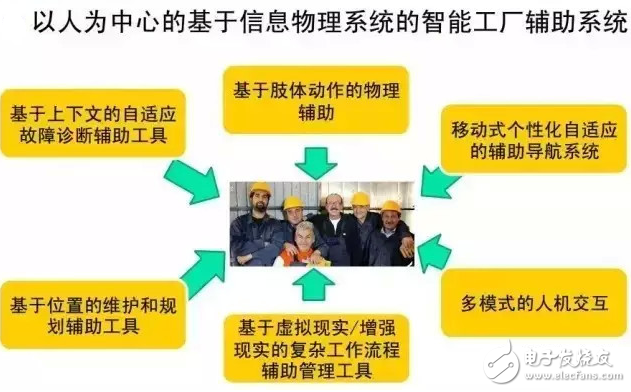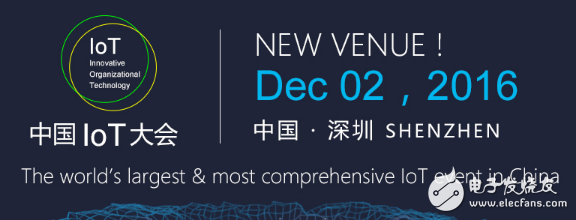A new wave of Nuggets "Industry 4.0" was launched in 2015. Now that you know enough about Industry 4.0, if you feel that you still need to recharge, then you must pay attention to the Industrial IoT Forum organized by E-Friends.
On May 19, 2015, the officially released "Made in China 2025" can be seen as a programmatic document to promote China's transformation from an industrial power to an industrial power. Its biggest highlight is the establishment of the national manufacturing power building leadership for the first time. The group, the group can be coordinated and promoted in general, and the Chinese manufacturing upgrade is ready to go.
From 2015 to now, the "Internet +" Action Plan, "Made in China 2025", "Guiding Opinions on Deepening the Integration of Manufacturing and Internet Development" and other State Council documents have been issued one after another. The whole society feels that the trend of industrial Internet development is becoming increasingly fierce. ". As the foundation of the founding of the country, the rejuvenation of the country, and vigorously promote the transformation and upgrading of the manufacturing industry is a must for China's development.
The essence of China's version of Industry 4.0 is the transformation of production mode
Made in China 2025 is an upgraded version of Made in China, namely China's version of Industry 4.0. If this strategy can be successfully implemented, it will be able to reshape the new competitive advantages of the manufacturing industry. Therefore, it is also the main battlefield for promoting economic development, upgrading and upgrading. However, Germany's "Industry 4.0" and China's manufacturing 2025 are not the same, because Germany is now developing from 3.0 to 4.0, and automation is moving toward network informatization, while China's manufacturing industry is still between industries 2.0 to 3.0. . Most companies in China need to supplement the 2.0 to 3.0 course, from electrification to automation.
Let us first look at three concepts:
Industry 1.0
Mechanization, marked by a steam engine, replaced the manpower with a steam-powered machine. From then on, the handicraft industry was separated from agriculture and officially evolved into industry.
Industry 2.0
Electrification, marked by the widespread use of electric power, replaces steam power with electric drive machines. From this part production and product assembly realizes division of labor, and the industry enters the era of mass production.
Industry 3.0
Automation, marked by the application of PLC (Programmable Logic Controller) and PC, from this machine not only took over most of the physical labor of the human body, but also took over part of the mental work, and the industrial production capacity has since surpassed the human consumption power. Humanity has entered an era of overcapacity.
Industry 4.0 is essentially a change in production mode. The fourth industrial revolution means a fundamental change in productivity. The corresponding relationship must be adjusted accordingly, and it will inevitably impact the individual, only to a certain extent.

The key element of the change in production mode is people. We can look at the smart factory auxiliary system introduced by a well-known manufacturer.
From automation to intelligence, the three elements that can't be jumped are people, devices, and products. From the current situation of China's manufacturing industry, "people" is the biggest obstacle facing China's move to Industry 4.0: on the one hand, technical engineers and managers who have been under the industrial thinking for 2.0 for a long time, the technology and thinking mode is relatively lagging behind. On the other hand, China lacks spiritual inheritance. Without the efforts of several generations, the industrialization of Germany and Japan cannot lead.
Short board to be filled
In Germany, it is called Industry 4.0, and in the United States, it is called Industrial Internet. No matter what the name is, is it not reduced at all? The fourth industrial revolution led by smart manufacturing was mainly to transform the manufacturing industry into an intelligent one by making full use of the combination of information and communication technology and the cyberspace virtual system-information physics system. At present, "Industry 4.0" is setting off a new wave of enthusiasm in various industries in China. For example, China's electronics industry and the automobile industry's "intelligence" are facing a hard battle.
For a long time, the manufacturing industry has been affected by problems such as overcapacity, lack of competition in the product market, and lag in market response, resulting in the development of many intermediate links, short value chains, high costs, and reduced profit margins. In this environment, traditional manufacturing industries must upgrade their breakthroughs and seek new models to improve quality and efficiency. Due to the asymmetry of Internet information and technology, traditional manufacturing industries are faced with problems such as how to transform and how to upgrade with Internet applications.
In addition, the limitations of the concept of thinking have also led to the slow development process. Some enterprises still have a backward view when reform and opening up - "all are produced by machines, then everyone will be unemployed, so this development is not a good thing," if this The views remain unchanged and development will be constrained.
At the same time, we see that the final report of the German “Industry 4.0†working group believes that there are four problems in the implementation of “Industry 4.0â€, such as standardization, complex system management, communication infrastructure construction, and network security. The same problem also applies. In the future of China's manufacturing industry. For example, smart factories need to network various internal and external items and services. Then, communication methods, data formats, and many other contents need to be standardized. After the actual production process is coordinated with various business management systems, the system as a whole is more complicated. Management will be more difficult; after the factory is connected to the outside world, the risk of malware intrusion and network attack will increase, which requires the development of countermeasures and solutions to ensure network security.
In the face of the fourth industrial revolution, China has the advantages of many engineering and technical personnel reserves, large domestic market, good economic growth momentum and high savings rate. Faced with such problems, the industry is working hard. We can see that the Ministry of Industry and Information Technology directly affiliates with China Information and Communication Research Institute, China Telecom, Alibaba, Huawei, Datang and other 143 industries, communications, Internet and software service companies set up the "Industrial Internet Industry Alliance" in Beijing in 2016 to promote the Internet to drive industrial innovation, improve quality and efficiency. During the year, the Alliance will focus on breakthroughs in key areas such as common technology research and development, industry standards, and security systems.
The concept has been advanced. How can domestic industrial enterprises not do naked swimmers and avoid being beaten by this wave? It is of course important to keep up with the trend. If you don’t understand school, you can use it. This is an important opportunity to enhance the competitiveness of core enterprises. It is also a major challenge and test to determine its survival and development. Want to know more about the Industrial IoT dry goods, please pay attention to our IoT conference, you can also scan the code to join our WeChat discussion group.

"How can you miss this new feast of the Internet of Things?! The 3rd "China IoT Conference" organized by Huaqiang Jufeng's Electronic Enthusiasts Network will be held in Shenzhen on December 2: Global Vision The exclusive view of higher value, more professional technology sharing, more cutting-edge pulsation, and the gathering of the world's well-known enterprises and elites of the Internet of Things, you must not miss it! More information Welcome everyone to continue to pay attention to the electronic enthusiast network!"

Air Conditioner Pressure Transmitter
Air Conditioner Pressure Transmitter,Pressure Transmitter,High Pressure Compressor Sensor,Pressure Sensor For Air Compressor
Shenzhen Ever-smart Sensor Technology Co., LTD , https://www.fluhandy.com
![<?echo $_SERVER['SERVER_NAME'];?>](/template/twentyseventeen/skin/images/header.jpg)